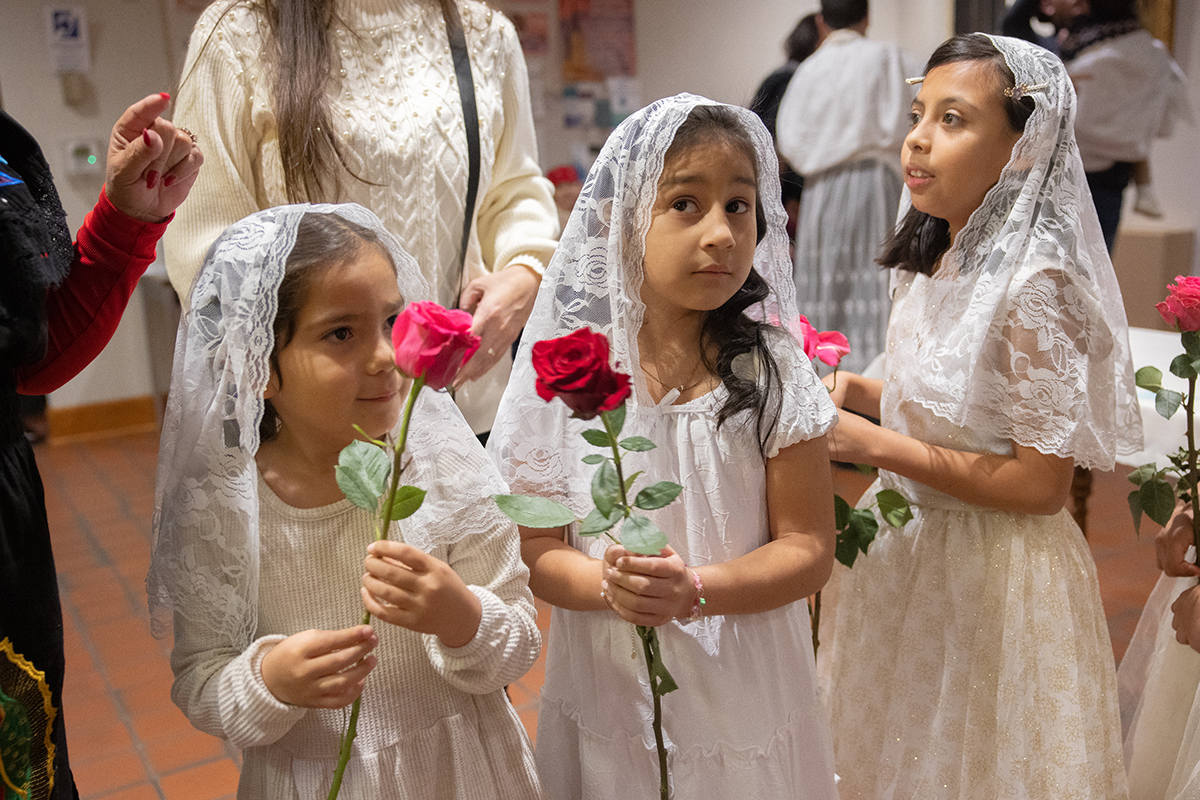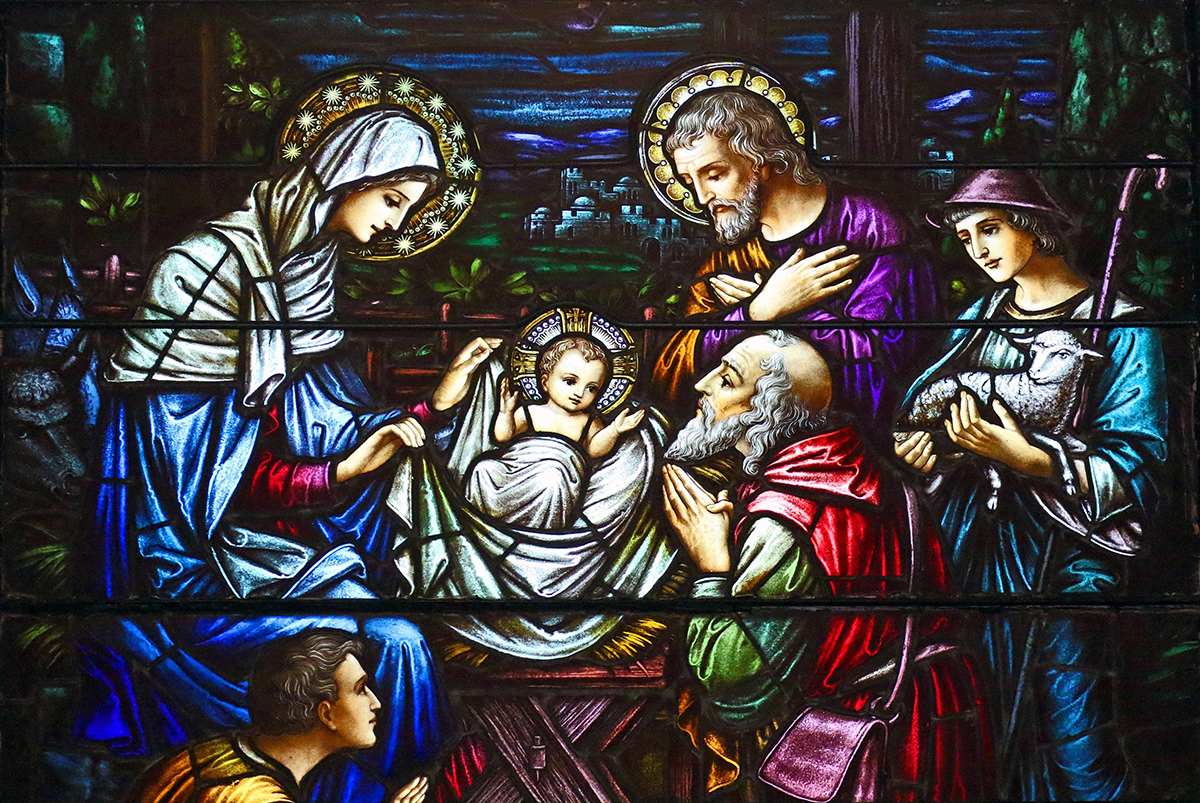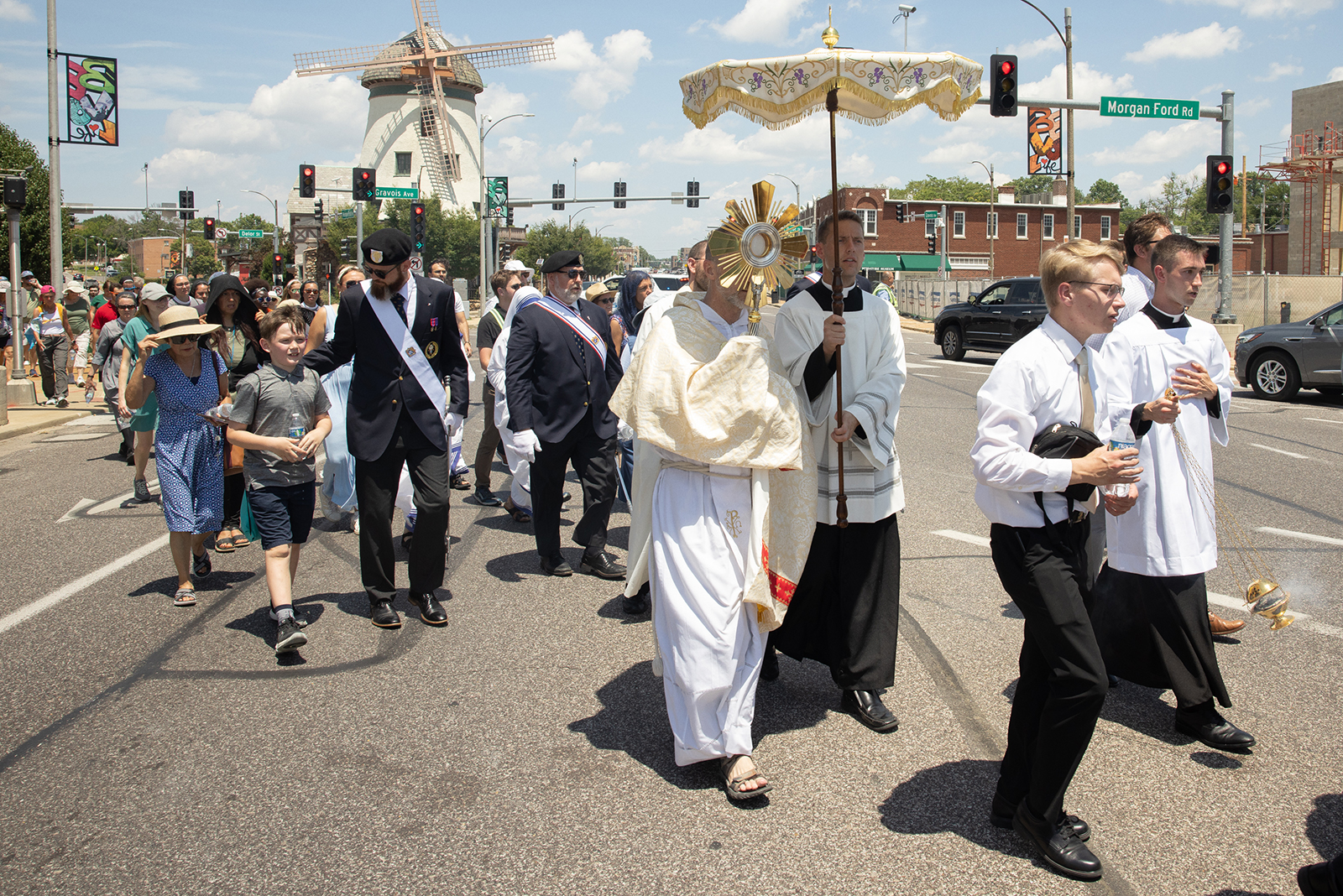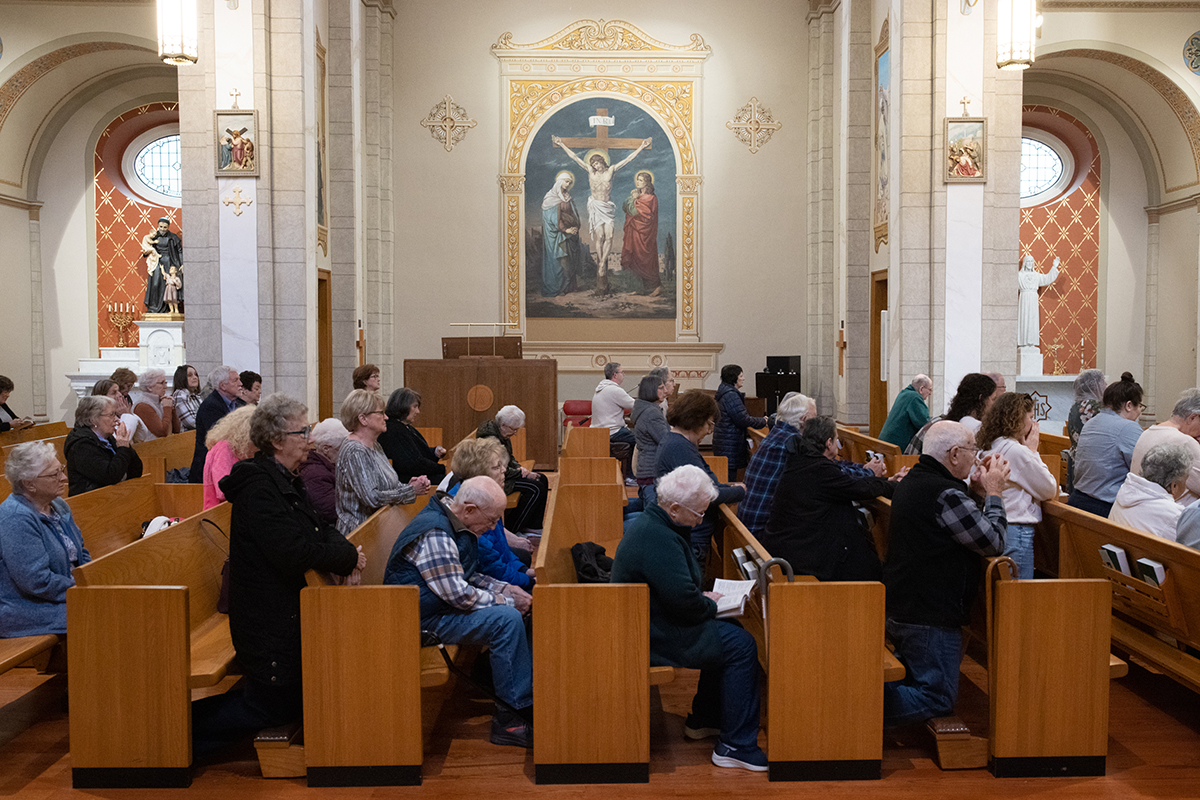Walking the walk when it comes to standing up for religious liberty
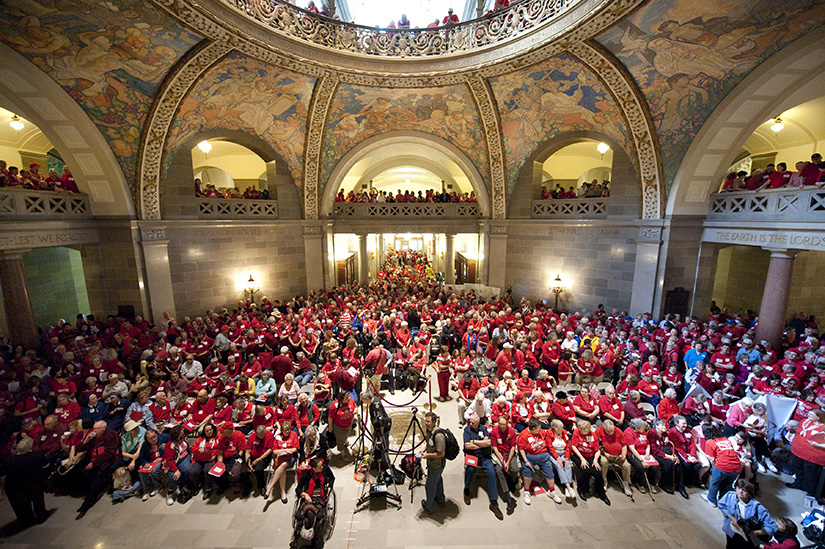
An outspoken supporter of religious liberty, Archbishop Carlson led efforts to legally challenge violations of religious freedom
At an impassioned speech at the Missouri State Capitol in 2012, Archbishop Robert J. Carlson charged Catholics and other people of faith to stand up against violations of our religious freedom.
Responding to a U.S. Department of Health and Human Services announcement in 2012 that many employers would be forced to offer their employees health coverage that includes contraception, sterilization and potentially abortion-inducing drugs, the archbishop said, “this is not about contraception; this is about religious liberty! We

stand together so that we can say clearly to all: We will render unto Caesar what belongs to Caesar, but we will NOT render unto Caesar what belongs to God!”
Archbishop Carlson has been an ardent promoter of religious liberty during his time in the Archdiocese of St. Louis. From the federal HHS mandate to local issues, such as a failed St. Louis City ordinance that sought to make the city a “sanctuary city” for abortion, the archbishop certainly has not shied away from the topic.
Religious liberty is both an American value and a universal human right and shouldn’t be considered something private or lived out within a community of worshippers once a week, the archbishop has said about the importance of preserving religious liberty.
“We are defined by our faith, which has to do with an understanding of God, human dignity and the world in which we live,” he said at a Mass several years ago in observation of the U.S. bishops’ Fortnight for Freedom. “The most important thing we can do now is pray, and in the public square present, argue for and act on the Catholic understanding of the sacredness of life from conception to natural death.”
He’s not just talked the talk, though; he’s walked the walk, too. In 2012, the Archdiocese of St. Louis, Catholic Charities of St. Louis and several others filed a lawsuit challenging the legality of the HHS mandate. Five years later, the archdiocese, Catholic Charities and more than 70 other religious organizations celebrated an “historic settlement” that granted a permanent injunction prohibiting the regulations or any similar future regulations from being enforced against the Archdiocese of St. Louis, Catholic Charities, and the other religious organizations.
“The U.S. Government agreed that the proposed regulations imposed a substantial burden on the free exercise of religion as guaranteed in the Constitution and violated the Religious Freedom Restoration Act,” Archbishop Carlson wrote in a 2017 letter announcing the settlement.
The settlement followed the release of new federal regulations that provide religious organizations with a full exemption from covering items that violate their core beliefs. The Trump administration issued interim rules expanding the exemption to the contraceptive mandate to include religious employers who object on moral grounds to covering contraceptive and abortion-inducing drugs and devices in their employee health insurance. The Justice Department also issued guidance to all administrative agencies and executive departments regarding religious liberty protections in federal law.
In 2017, the archdiocese also went to bat against a St. Louis city ordinance that sought to make the city a “sanctuary city” for abortion. The ordinance, which a federal court ruled as unconstitutional in 2018, provided a protected class status to women who choose to have an abortion and those who support her in that action — while also discriminating against those who promote pro-life alternatives, according to lawsuit by Thomas More Society on behalf of Our Lady’s Inn, archdiocesan elementary schools, O’Brien Industrial Holdings LLC and Frank Robert O’Brien. The language also created protections for anyone who has “made a decision related to abortion,” even when the abortion is not their own.
The suit said that City of St. Louis ordinance 70459 (formerly known as Board Bill 203) violated religious freedom under the U.S. constitution and several Missouri laws. It also asserted that the ordinance extended a protected class status based on “reproductive health decisions,” requiring pro-life organizations to hire abortion proponents and rent to abortion clinics and required non-religious employers to cover or pay for abortions through their employee health plans.
After the federal court ruling, Archbishop Carlson noted that the city’s attempt at making itself a “sanctuary city” was “unconstitutional and in violation of the Missouri Religious Freedom Restoration Act by The United States District Court for the Eastern District of Missouri. With this ruling, for which we are grateful, our great city follows in the footsteps of its patron, St. Louis King of France, in its protection of the weak from the strong.”
Local religious liberty victories
• In 2012, the Archdiocese of St. Louis, Catholic Charities of St. Louis and several others filed a lawsuit challenging the legality of the U.S. Department of Health and Human Services contraception mandate. Five years later, the archdiocese, Catholic Charities and more than 70 other religious organizations celebrated an “historic settlement” that granted a permanent injunction prohibiting the regulations or any similar future regulations from being enforced against the Archdiocese of St. Louis, Catholic Charities, and the other religious organizations.
• In 2017, the archdiocese also went to bat against a St. Louis city ordinance that sought to make the city a “sanctuary city” for abortion. The ordinance, which a federal court ruled as unconstitutional in 2018, provided a protected class status to women who choose to have an abortion and those who support her in that action — while also discriminating against those who promote pro-life alternatives, according to lawsuit by Thomas More Society on behalf of Our Lady’s Inn, archdiocesan elementary schools, O’Brien Industrial Holdings LLC and Frank Robert O’Brien
At an impassioned speech at the Missouri State Capitol in 2012, Archbishop Robert J. Carlson charged Catholics and other people of faith to stand up against violations of our religious … Walking the walk when it comes to standing up for religious liberty
Subscribe to Read All St. Louis Review Stories
All readers receive 5 stories to read free per month. After that, readers will need to be logged in.
If you are currently receive the St. Louis Review at your home or office, please send your name and address (and subscriber id if you know it) to subscriptions@stlouisreview.com to get your login information.
If you are not currently a subscriber to the St. Louis Review, please contact subscriptions@stlouisreview.com for information on how to subscribe.

